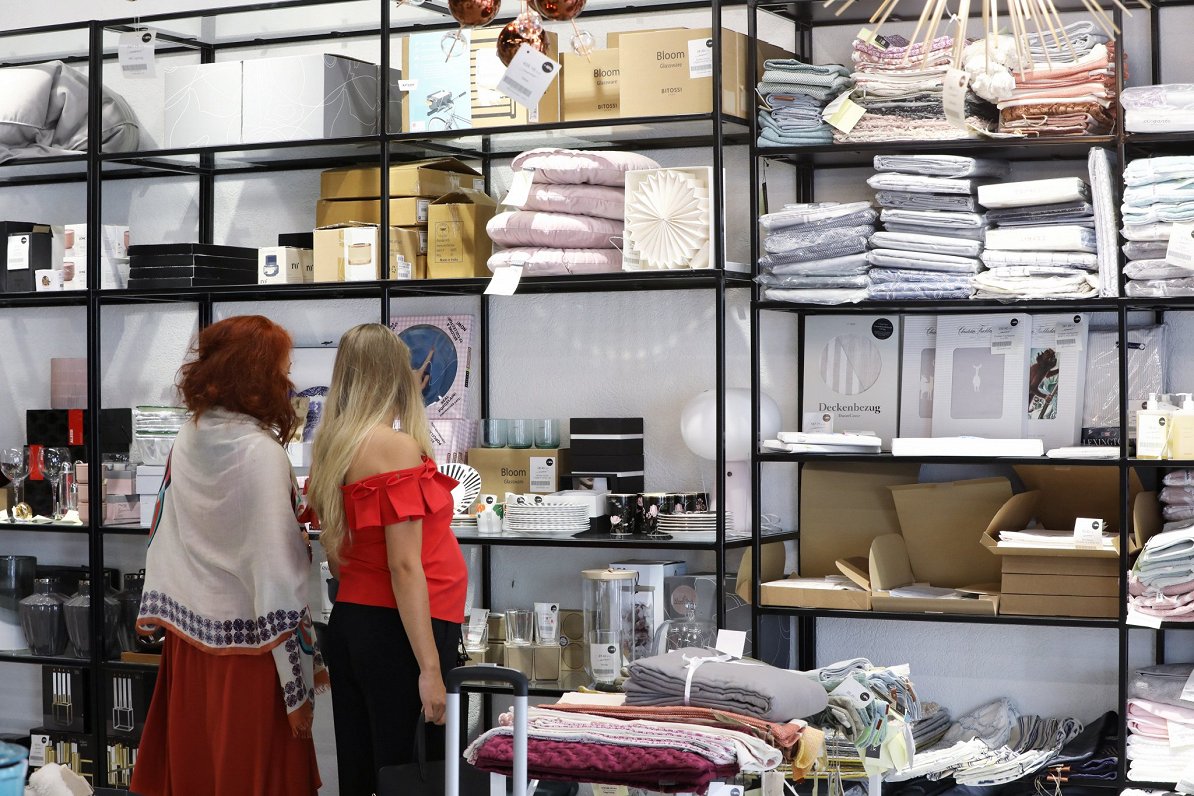Eurostat data show that although the last year was like a rollercoaster, after the first shock of the spring, the retail sector has found a way to survive.
So far the most dramatic restrictions in the European retail sector were introduced in March and April, when it became clear to everyone that the pandemic was serious, but there was not much understanding how to live with it. In many European countries, nearly all shops were closed at this time, with the exception of essentials, in order to minimize people's gathering in one place. The summer could be considered a moment of respite, as the reins of the restrictions were loosened with the level of infection decreasing. However, as the second wave of the pandemic began in the autumn, which in a number of countries, including the Baltics, appeared to be much harsher than the first, more and more restrictions were once again introduced.
The retail trade index of the European Union (EU), produced by Eurostat, shows that if in March and April trading volumes across Europe fell and people purchased only food and essentials, then autumn and winter, even though there is fluctuation, did not show such a huge drop in volumes. Traders and consumers have learned to live with the new situation, as well as expand sales on the Internet
Looking at the EU Member States individually, the situation is not as simple. The fact that retail trade volumes in Latvia and Lithuania were not increasing at the end of the year, as in some other EU countries, but declining, is also proof that the epidemiological situation here was much worse.
In Latvia, according to Eurostat, retail trade volumes decreased by 4.4% in December compared to the same timeframe a year ago. Lithuania experienced a 1% drop, and Estonia, on the contrary, an increase of 5.9%.
"In the first half of December, we observed gift-buying fever. But the significantly tougher restrictions in the second half of December took a toll. Compared with November, retail sales fell 5.7% in December, making it a 4.4% drop in the year. Despite the virus crisis, 1.5% growth was seen in retail sales in 2020," Swedbank economist Laura Orleāne said.
Luminor spokesman Pēteris Strautiņš, commenting on last year's developments in retail, said that the government must seriously consider changing the retail regulation model.
“The situation is becoming critical to both sellers and people who don't have opportunities to buy goods on the Internet. It does not seem possible to maintain the existing rules for several months, so a sustainable solution should be sought. It is necessary to move the rules towards those we had in the spring [2020], which allowed us both to stop the virus and to achieve a smaller drop in economic activity than in Europe as a whole,” Strautiņš said.
Despite all the problems encountered by Latvian retail last year, none of the largest companies has ceased operations until now. The same cannot be said for all of Europe's retail networks, as some have been forced to close their doors altogether. Among the more known brands in Latvia, this is the clothing retailer Debenhams. The 240-year-old British network of shops, which employed 12,000 people, after another sales ban in the U.K., announced it wouldn't open its doors again.
In Latvia, the restrictions are mainly affecting smaller businesses, as these stores are still forbidden to open.
Similar stories can be found in a number of European countries. Moreover, it should be borne in mind that the pandemic is not over yet and there are likely to be new victims among commercial companies.






























